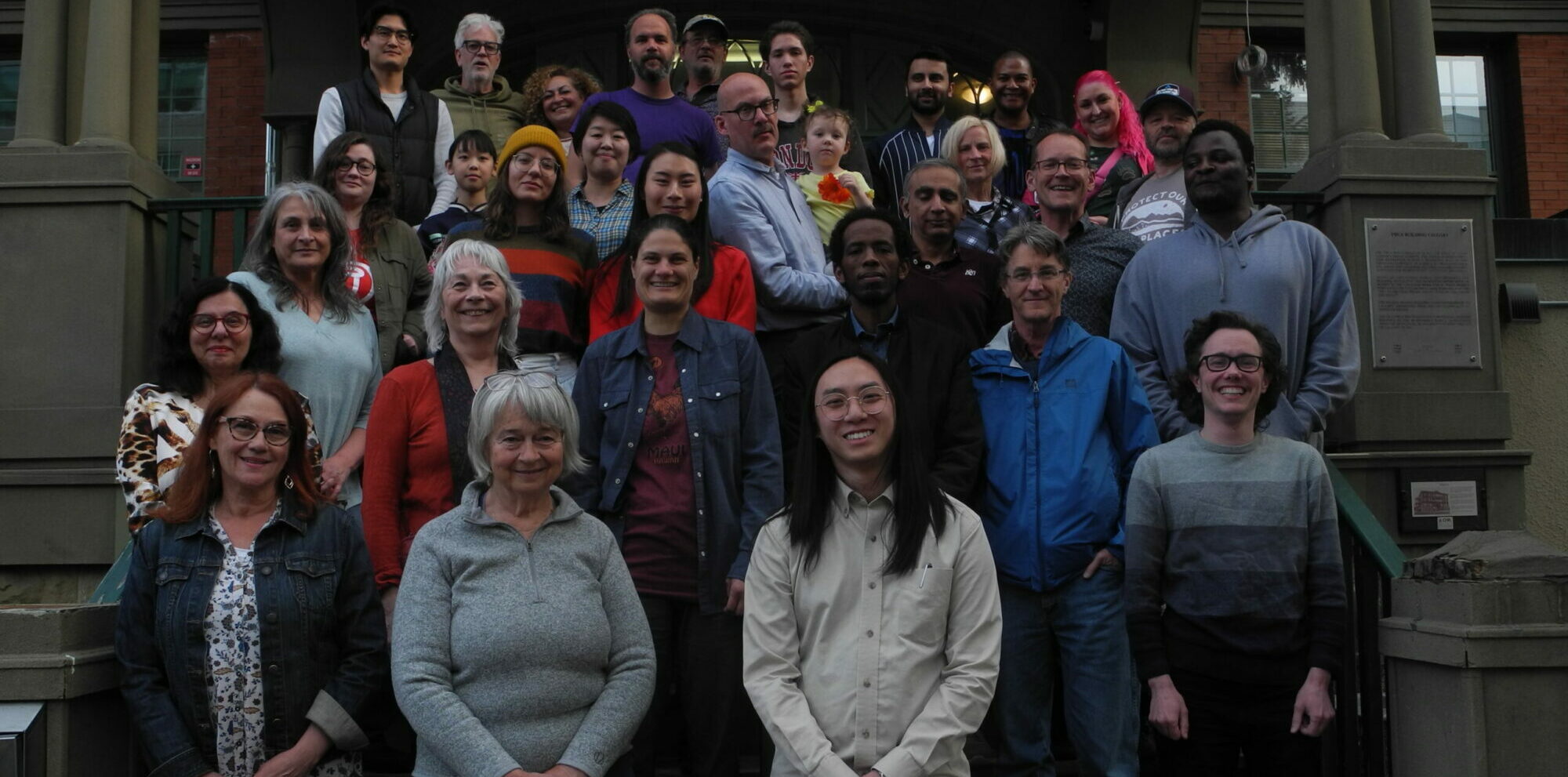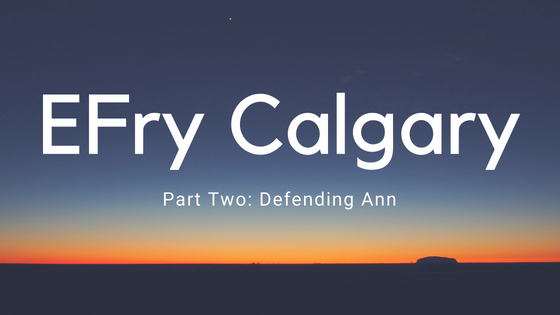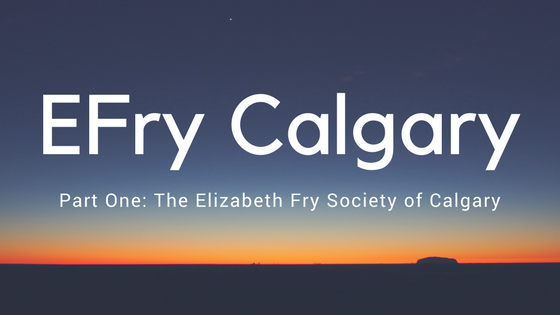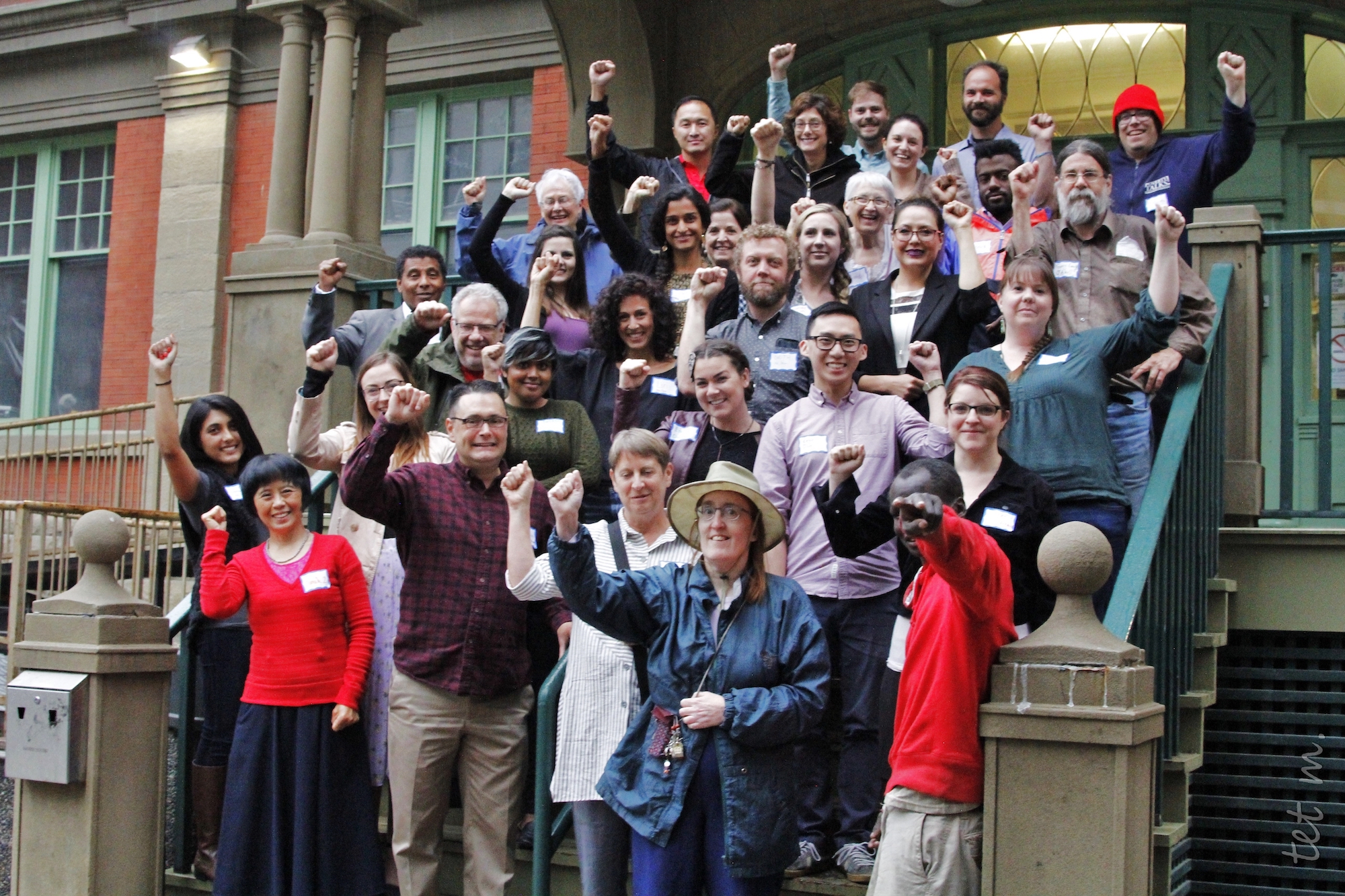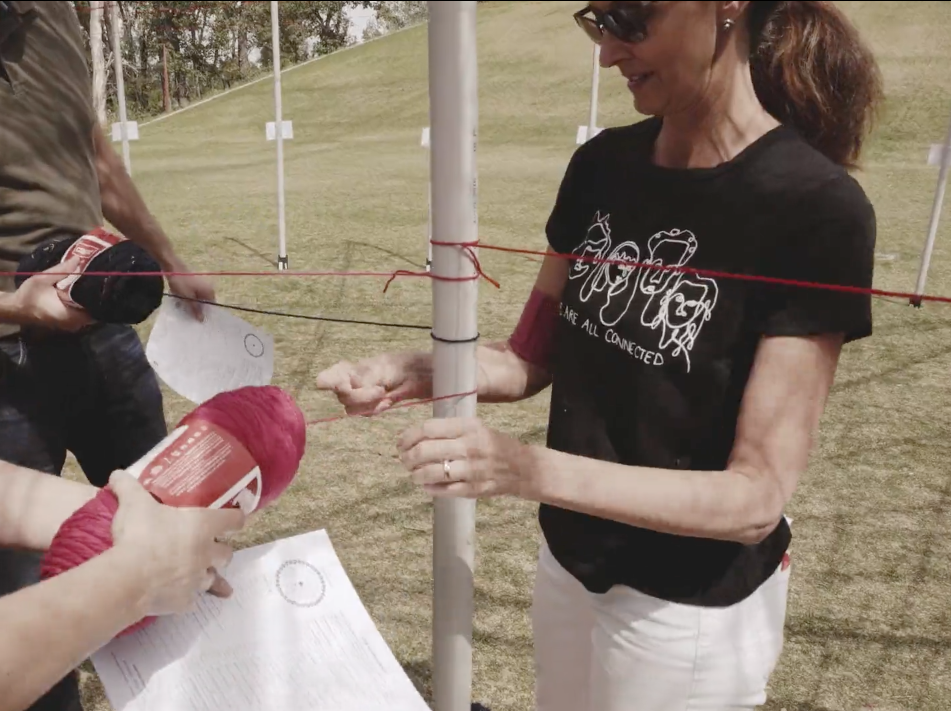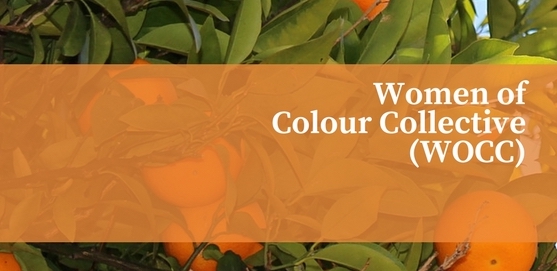EFry Calgary – Part Two
EFry Calgary – Part One
The Elizabeth Fry Society of Calgary (EFry Calgary)
The Elizabeth Fry Society of Calgary (EFry Calgary) is an agency that serves the needs of women who are currently engaged with judicial systems charges, including bylaw tickets, warrants, missed court dates, and child custody issues. The Calgary chapter of EFry focuses not only on these pressing matters, but the woman’s needs as a whole. “For 50 years, we have offered a hand up to thousands of women engaged with the legal and justice systems by providing practical programs, basic necessities and connections to community resources. Our goal is to give them the skills they need to create more hopeful futures.”[1]
EFry Calgary has historically focused on being able to engage their clients on a deeper level. The organization often provides support on many levels that are critical to women of colour. They have been a member of CommunityWise on and off for many years, most recently since 2014.
When Executive Director Katelyn Lucas is asked what the two biggest contributing factors beyond involvement with the justice system are for EFry Calgary’s clients, the answer is first, trauma (specifically inter-generational trauma); the second most common factor, often affecting women of colour and associated with inter-generational trauma, is poverty.
With anywhere from 60 to 80% of their clientele being women of colour, EFry Calgary is well versed in the needs of marginalized populations. EFry Calgary not only helps women to find their voices inside of the legal system but also offers a wide range of basic and complex needs support. When visiting their offices, you are no sooner in the door before you see a tray of pastries and a coffee station; further into the office, you will see cabinet filled with hygiene products. EFry Calgary knows that if they can start a relationship built on trust, acknowledging that there is more to a person than their legal issues, they have a better chance of helping their clients move beyond the needs that brought them to EFry Calgary to begin with. Providing a snack and hygiene products are the first steps of many to help build this relationship.
EFry Calgary also offers support through referrals to different services and agencies. Once a woman has engaged with EFry Calgary, staff and volunteers can help with referrals to things like addictions treatment programs, housing supports, and food resources. Having a staff member or volunteer help fill out forms and paperwork works to remove yet another barrier for their clients.
EFry Calgary has evolved to include cultural considerations in the engagement and support of their clients, volunteers, and staff. They offer the chance for volunteers to learn about other cultural norms and practises through conversation and explanation. This kind of inclusive attitude is helpful to the way EFry Calgary engages their clients and to the way that clients engage EFry Calgary.
EFry Calgary works very hard to avoid speaking on behalf of their clients, rather removing the barriers that have been created by racism, inter-generational trauma, and poverty so their clients can hear and see their options clearly to create a guided plan based on sound advice instead of reaction. This approach is not usually the way people of colour are engaged by “helper agencies”, and often the voice of the person of colour is silenced to the point of making choices that are not in their best interest but are the easiest way out of the immediate crisis.
Working both inside and outside of prisons, EFry Calgary also has their eye on the long-term plans of their clients. This planning includes in-custody engagement, connection to spiritual guidance and cultural teachings, release plans, and returning to the community planning and management so their clients have the best possible chance of long term success.
Through the years, the programs and services EFry Calgary offers have changed, grown, and been reinvented but many things have remained the same: their focus on helping women navigate the justice system, their desire to be culturally diverse, and their ability to give women of colour space to have a voice in some of the most colonial and frightening systems the Canadian government has to offer.
[1] About Us, Elizabeth Fry Society of Calgary (EFry Calgary)
This story was researched and written by Susan Gwynn. We would like to thank Katelyn Lucas, current executive director of the Elizabeth Fry Society of Calgary, for taking the time to speak with us about EFry Calgary.
In the fall of 2017, CommunityWise received a Community Initiatives Program (CIP) Canada Alberta 150 grant from the Government of Alberta to: tell stories that celebrate the history of social justice work done by CommunityWise member organizations who were led by and worked in service of racialized and Indigenous communities; and, develop podcast episodes that discuss the challenges and opportunities that ethno-racial diversity presents. This work is part of CommunityWise’s on going Anti-Racist Organizational Change (AROC) process.
CommunityWise Annual Report is here!
Thank you to all of those who were able to attend our successful 2018 Annual General Meeting! Weren't able to attend? Read the note from our Board below and click here to view the full Annual Report.
Message from the Board
The CommunityWise Board of Directors would like to extend our thanks to all of you for attending the Annual General Meeting for 2018. This is our organization’s 39th year in existence, and this past year has been truly amazing. As a member-based organization with an incredible (incredible!) staff, this success is because of all of you! This annual report goes into further detail about all the ways in which grassroots social change is making an impact for thousands of Calgarians and building a more equitable non-profit sector. Here are a few items from the Board:
This past year we met every second month and had two orientation and strategic planning sessions. Board members were also part of the finance, governance, human resources, and lease committees, along with community members and staff. We benefited from the exceptional work of the Anti-Racist Organizational Change process (AROC), receiving training from AROC and working with staff to update policies and practices to put anti-racism into action. Other highlights include hiring new permanent and temporary staff: Finance and Office Coordinator Sarah Zhu, Summer Student Eman Hussen, Administrative Support Di Honorio, Project Coordinator Megan Asselin, and AROC Support Staff Sameen Ashraf. Each of these individuals has brought a ton of talent and experience to our organization and we are thrilled to have had them working with us!
The last year has included a lot of emphasis on developing board skills, especially in advancing our theory of change and using consensus decision making, and on building our overall cohesion. We’re excited to be moving ahead with the City on our lease and supporting the excellent work of our staff and our members.
Along with the standard board business, the best part of our role is hearing about the amazing work of our members. We're incredibly proud of all of our members and the work YOU do, day in and day out. We thank you and appreciate you.
In solidarity,
CommunityWise Board of Directors
Member Spotlight: Calgary Centre for Global Community (CCGC)
Calgary Centre for Global Community (CCGC) – Tenant Member (April 2018)
Interviewer: Maddison Coulson. CommunityWise – Practicum Student.
Interviewee: Chris Jensen. CCGC – Director, Operations.
What is the name of your organization?
Calgary Centre for Global Community (CCGC) – founded 2008.
Humainologie – multimedia production house, established 2015.
Can you summarize what your organization’s main objectives are? What are the mission/vision/value(s) that your organization abides by?
CCGC aspires to build a culture of people who are capable of bringing about extraordinary positive change through informed and sustained civic engagement.
Humainologie’s mission is to promote the recognition of our shared humanity, through raising empathy and awareness around issues of vulnerability, human connection, and breaking down barriers between people. We are all interconnected, and cooperation is vital to create a future in which we can all thrive.
How has your organization changed over time?
In 2015, we founded Humainologie to be a multimedia production house for CCGC to help increase empathy and understanding, as well as raise more awareness about ourselves and others.
Why did you feel the need to start this organization?
We felt the need to start Humainologie because we identified the ability to expand our influence and our impact, recognizing the need for increased empathy and understanding and raising awareness about ourselves and others. Through connection to ourselves and each other, we are able to accept and appreciate our own and others individual uniqueness, beauty, and imperfections. Through film and other multimedia content we reach a wider audience and have a bigger impact on increasing understanding.
What is it like working at CCGC? What is a typical day?
A typical day looks like connecting with partners in the community to see if and how we can collaborate, managing logistics for different events, and running the office.
What are some challenges working at CCGC?
As an organization, funding is a challenge, and so is raising our own profile. Also, because we’re so small, it gets a little lonely. However, reaching out to the community helps. It can also be challenging trying to break down barriers between other non-profits, but it’s important so we can start building each up.
Are there any new projects you are working on at the moment?
We’re looking at hosting our second annual Empathy Week, a series of programming to increase empathy and understand vulnerability. This will be held from June 1st– 7th.
We’re also working on our third annual film festival which will be held May 16thand May 17th.
We are also doing a podcast series called “Empathy Walk YYC” in which we will walk through the Beltline looking into historical buildings and the stories associated with those buildings.
There are currently two film series that we’ve done called Under the Umbrella we Met, and we are currently working on another in which we have partnered with Fairytales to address gender identities.
What is Humainologie in terms of CCGC? How are they different? How are they linked?
Humainologie is linked to CCGC in the way that CCGC is the legal entity and Humainologie is the production house. They are separate in that CCGC still has its own projects, such as the Social Transformation Tournament, and Humainologie does the multimedia side, such as films, podcasts and web series.
How has being a member at CommunityWise impacted your organization?
Working within CommunityWise raised our awareness about a lot of other good work happening in the city, and we have been able to make connections that we might not have otherwise made. It allowed us to partner with other members like SEEDS Connections, and Fairytales, as well as some other non-profit organizations.
Is your organization hosting any events coming up soon that folks might be interested in?
Yes, there is going to be the film festival on May 16thand 17th,2018, at the Globe Theatre. Empathy week is from June 1stto 7th, 2018, with programming to be held in various locations around the city. The third annual Social Transformation Tournament will be held in September 2018.
Where can folks go for more information about your organization?
Website: www.Humainologie.com
Facebook: Humainologie
Website: www.CalgaryCGC.org
Facebook: CalgaryCGC
Calgary’s Women of Colour Collective (WOCC)
Calgary’s Women of Colour Collective (WOCC)
By the 1980’s, the women’s movement was a recognized movement working to gain equal rights for women in the workplace and beyond, but something the movement did not address was that the fight for equality was vastly different for women of colour.
When it comes to discrimination, marginalization, and oppression, women of colour face it on more fronts and in a much deeper way than white women. In the women’s movement, the voices of women of colour were being silenced and pushed down because at that time the general feeling was that the mention of colour related discrimination would detract from the overall message of equality for women.
The attitude that women of colour should take a backseat and accept being silenced inside of the women’s movement is why the Women Of Colour Collective (WOCC) was created in 1987. WOCC was born from the Calgary Status of Women Action Committee that was already active in Calgary. The Calgary Status of Women Action Committee worked to raise awareness and educate the public on a wide range of women’s issues. WOCC saw that although the women’s movement set out to address issues of gender equality, the issue of racial equality had to be a part of the movement because while making advancements for white women, there was no change for women of colour. “WOCC members wanted to challenge both hetero-normative assumptions in the women of colour community, as well as white privilege in the local feminist community, which they felt was endemic in Calgary” writes Kevin Allen, research lead of the Calgary Gay History Project[1].
WOCC felt that in order to create change for all women there needed to be a focus on the issues that specifically related to women of colour. They wanted to refocus the issues of racial inequality by bringing their members’ voices of lived experience to the conversation. To achieve this, they supported their members in various ways including holding supportive group meetings, building race-related survival skills, convening community conversations about related topics (including issues brought up through the media like the treatment of Rodney King[2]), providing peer advocacy for navigating through social services, healthcare, and justice systems, and at times even providing funds for members who need assistance with basic needs. WOCC members felt that the only way to hear the voices of women of colour was to remove some of the barriers that women of colour face.
At its inception, WOCC held meetings in members’ homes, but as the membership grew they needed to move into a bigger space. That is when they became members of CommunityWise Resource Centre (formerly called The Old Y Centre for Community Organizations).
CommunityWise did more than just offer WOCC the space they needed to run their organization and hold meetings and support groups. Having a physical location with dedicated phone lines and secure doors gave WOCC a level of security that it unfortunately ended up needing. As the group grew its strength and numbers threats started coming to the group and its leaders.
It would take more than threats to deter WOCC and its members. Amongst its accomplishments, WOCC co-hosted the Herland Film Festival. The Herland Feminist Film Festival started in 1989 when the Status of Women Action Committee joined with the Women of Colour Collective to host a film festival style fundraiser, and it was a very successful venture. Today it is part of the archive at the Glenbow Museum[3].
Many grassroots groups and organizations have built on the work and success of WOCC. One of the most forward thinking things that was spurred on by the voices that WOCC supported was a group devoted to white women exploring their own privilege and how that privilege impacted their belief systems and values.
After ten years of bringing the voices of women of colour to the table, WOCC closed their doors; but the work they started continues. You can see examples of it in many of the organizations present at CommunityWise today, including the work being done by the Anti-Racist Organizational Change (AROC) Working and Advisory Groups.
—
[1] “The Of Colour Collective”, Calgary Gay History Project
[2] Rodney King, Wikipedia
[3] herland feminist film festival fonds, Glenbow Museum
This story was researched and written by Susan Gwynn. We are indebted to Janet Yee, a co-founder of WOCC, for talking the time to speak with us about her time with the collective.
In the fall of 2017, CommunityWise received a Community Initiatives Program (CIP) Canada Alberta 150 grant from the Government of Alberta to: tell stories that celebrate the history of social justice work done by CommunityWise member organizations that were led by and worked in service of racialized and Indigenous communities; and, develop podcast episodes that discuss the challenges and opportunities that ethno-racial diversity presents. This work is part of CommunityWise’s on-going Anti-Racist Organizational Change (AROC) process.
